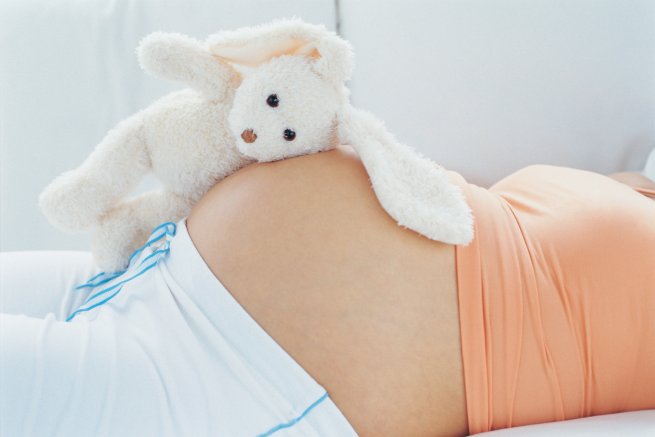Antipyretics for children are prescribed by a pediatrician. But there are emergency situations with fever when the child needs to be given medicine immediately. Then the parents take responsibility and use antipyretic drugs. What is allowed to be given to infants? How can you lower the temperature in older children? What medications are the safest?
No matter how small the baby is in his mother’s belly, he can already do a lot: roll over, suck his thumb, blink, swallow water and even... hiccup. Why does my baby hiccup in his stomach? Are fetal hiccups during pregnancy associated with any negative consequences? Let's look at these burning questions.
What causes hiccups?
The most important thing you need to know about your baby’s hiccups is that this is normal, both, for example, at 31 weeks, and earlier or later. Some mothers feel specific movements, reminiscent of hiccups, even in the middle of pregnancy. However, most often, hiccups occur in the fetus closer to 34 weeks, or even 36 weeks of pregnancy. And this is due to the fact that the baby is getting bigger, his activity is more noticeable to the mother through the walls of the abdomen, and also due to the fact that the child is maturing.
Exact knowledge of the reasons why children hiccup is not yet available. Most likely, this is one of the many stages of preparing the fetus for further independent life, one of the stages of its gradual development. It happens that a child often hiccups in the womb and this begins to bother the pregnant woman. Is everything okay with the baby? Shouldn't urgent measures be taken to ensure his health? In order not to worry in vain, you need to familiarize yourself with the possible prerequisites for the occurrence of hiccups:
- Swallowing amniotic fluid;
- Preparation of the respiratory system;
- Hypoxia.
A baby in the womb often swallows the water it is in. Amniotic fluid ensures the safety of the child and provides him with a nutritious environment. Studies of the behavior of children in the womb have shown that when glucose is added to the amniotic fluid, the fetus's swallowing movements become more frequent and greedy. In other words, the child tastes the waters around him and recognizes their taste. By 38 weeks he can swallow about 500 ml of amniotic fluid per day! Fluid can enter and exit the lungs through contraction of the diaphragm, which causes hiccups.
If a growing organism hiccups several times a day from 37 weeks onwards, this may indicate almost complete maturation of the respiratory organs (diaphragm, lungs) and their training for further life outside the womb. Such preparation does not cause danger or discomfort for the baby.
But what worries expectant mothers is the likelihood of intrauterine oxygen starvation. Hiccups do not necessarily indicate fetal hypoxia, but if it is particularly debilitating, long-term, or for some reason bothers and worries the pregnant woman, it is better to see a doctor and undergo the necessary examinations. From 30 weeks, CTG can be prescribed - cardiotocography, showing the baby’s heart rate. And at 32 weeks, a routine ultrasound is usually prescribed, the data of which can confirm or refute the presence of hypoxia. Moderate hypoxia can be corrected, which inspires hope and cannot but rejoice.
How to tell if your baby is hiccupping
For those who have not encountered manifestations of intrauterine hiccups, it is difficult to imagine what sensations the mother experiences and what this phenomenon looks like. How can you tell if your baby is hiccupping in his stomach? Hiccups may look like:
- rhythmic vibrations;
- short tapping and twitching;
- monotonous jolts or clicks.
Often a woman guesses on an intuitive level that the sensations she experiences are precisely the baby’s hiccups. It is impossible to predict the frequency and duration; for some it is 1 minute, for others it is an hour, once a week or many times a day. However, there is some correlation between hiccups and a pregnant woman’s consumption of sweet foods.
How to help yourself if hiccups bother you?
At 33 weeks, the birth date is still quite far away, and it would be logical to get some sleep ahead of the sleepless nights with the new baby. But a pregnant woman’s peace is disturbed either by a pressed and quickly filling bladder, or by anxieties and worries associated with the upcoming birth and drastic changes in life. And if the baby also decided to be more active at night and decided to hiccup, what should he do then? Here the mother may be concerned not only about his well-being, but also about her own comfort.

What to do if a baby hiccups in the womb? If the baby is healthy and his hiccups do not bother his mother, then nothing. But when prolonged tremors bother you and prevent you from falling asleep, you should try to reconsider your diet and avoid eating sweets in the evening and before bed, because eating them can provoke contractions of the baby’s diaphragm.
When hiccups occur during the daytime, you can try other remedies. Changing body position, adopting a pose on all fours, and walking in the fresh air are effective. In addition, the mother’s physical activity, healthy sleep and a balanced diet serve as a prevention of that very hypoxia that no one wants to face.
Many mothers talk to babies in their tummy - at the behest of their hearts or in accordance with the recommendations of specialists, it doesn’t matter. The child in the womb is able to distinguish voices, sounds, and is sensitive to touch. If hiccups or excessive activity at an inopportune hour disturb the mother’s peace, you can gently talk to the child, put your hand on his stomach, and stroke him. Even if the baby does not calm down immediately, you will establish contact with him and calm down yourself. Remember that hiccups at any stage - both at 20 and 35 weeks - are absolutely normal.



